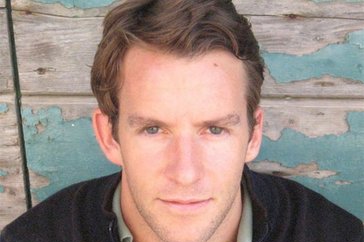Openly gay literary agent and new author Bill Clegg has moved into the spotlight of his industry. This not-uncommon feat is more impressive considering the rise, subsequent harrowing fall from grace and the dance with death he chronicles in his first book, “Portrait of an Addict as a Young Man.”
The memoir introduces readers to Clegg in early 2005, as a literary agent on the rise with his own upstart company, a circle of upwardly mobile friends and a successful, supportive filmmaker boyfriend. Through flashbacks to his troubled childhood and problematic college years, readers glimpse why the successful businessman has a drinking problem and such an addictive personality. And since the 39-year-old didn’t come from money, it’s also apparent that he feels out of place with his rather charmed life at the time and his affluent friends.
“My discomfort and my feelings of inferiority was just part of a broader discomfort that I had in the world,” Clegg said. “When I was 12, I drank my dad’s booze as a way of addressing that discomfort. Whatever the anxiety, I always used alcohol and drugs after the age of 12 to find some kind of sanctuary.”
Still, it doesn’t prepare readers for Clegg’s complete downward spiral as he quits his life and his job and burns through $70,000 — his life savings — on a two-month crack-and-alcohol binge.
As Clegg doesn’t come across as sympathetic in the detailed retelling of his story (his drug binge rivals anything Whitney, Bobby, Motley Crue and David Crosby did at the height of their addictions), did he have any reservations about putting it out there for public consumption?
“When other addicts and alcoholics in recovery have been honest with me about the extremity of their addiction and the dark places it took them, it’s given me the courage to be honest myself,” Clegg said. “So when I thought about it being in the world and other people reading, it’s not worth having it in the world unless it’s completely frank and candid and doesn’t hold back. It is of no use if it doesn’t provide some sort of identification or comfort for another addict or alcoholic.”
Clegg’s book didn’t begin as something the public would ever see. After two months of crack binges, fifths of vodka, hotel rooms, escorts and hallucinations, Clegg was running from real loved ones and imagined DEA agents tracking him down all over New York City. After bottoming out — trying to smoke himself to death with a $2,000 pile of crack — Clegg woke up in a psychiatric hospital and, later, went into rehab. He said his writing was a way to sort out what was real and what wasn’t.
“At first, the initial writing came while I was in rehab. They were transcriptions of that two-month period that preceded my hospitalization. At first, it was like waking up from a dream and writing down what you remember because you’re afraid you won’t have access to those details later. So much of the period preceding my hospitalization was clouded by paranoia: There was so much, I couldn’t tell what was true and what was delusional. I wrote down those things as a way of, hopefully later when I had some distance from that time, that I would be able to see it more clearly and separate what had been delusional paranoia and what had been fact. Later, with a greater distance from that period, it was difficult as memories sort of opened up as to where my addiction took me. Sometimes in the writing, certain memories would resurface that had been buried. And that was difficult to face.”
Clegg also had to face what his actions had cost the people in his life, especially his business partner, Kate, and his boyfriend at the time, Noah, both of whom had to cut Clegg out of their lives.
“It’s an ongoing thing,” Clegg said about his relationship with them today. “Kate is not in my life and I have a lot of grief and regret around that. Noah is in my life and it’s been a long, slow, forward-moving project of being in each other’s lives. I suspect it will be an ongoing thing.”
Clegg had many unsuccessful trips to rehab before his big binge, but said after his suicide attempt, he adopted a different approach that finally took.
“It’s against all the laws of my individual nature to be sober. Even after [earlier attempts at] rehab, I came back to New York and relapsed again and again and again. This is being actively involved in recovery, not working and only being focused on getting sober. I had a very difficult time putting two days of sobriety together. I just kept at it, I did not give up and I reached out for help from other alcoholics and addicts. It is only through their help that I was able to eventually get sober. Ultimately, it was being able to ask — completely ask — for help and to dismantle the idea that it was just my willpower that would be the thing that would get me sober. I needed other people and I needed help.”
After completing rehab and a year of being clean, Clegg was able find work as a literary agent, which was something he never thought would happen after his very public meltdown.
“Certain things came back but there’s no finish line of recovery and sobriety,” he said. “I have a job. Someone employs me to do what I do and I feel grateful for that. After a year, someone paid me to be a literary agent in a field that I left in great shame and chaos. I was particularly grateful that I was allowed to be entrusted again to do what I love to do most.”
“Portrait of an Addict as a Young Man” is in stores now.
Larry Nichols can be reached at larry@epgn.com.

